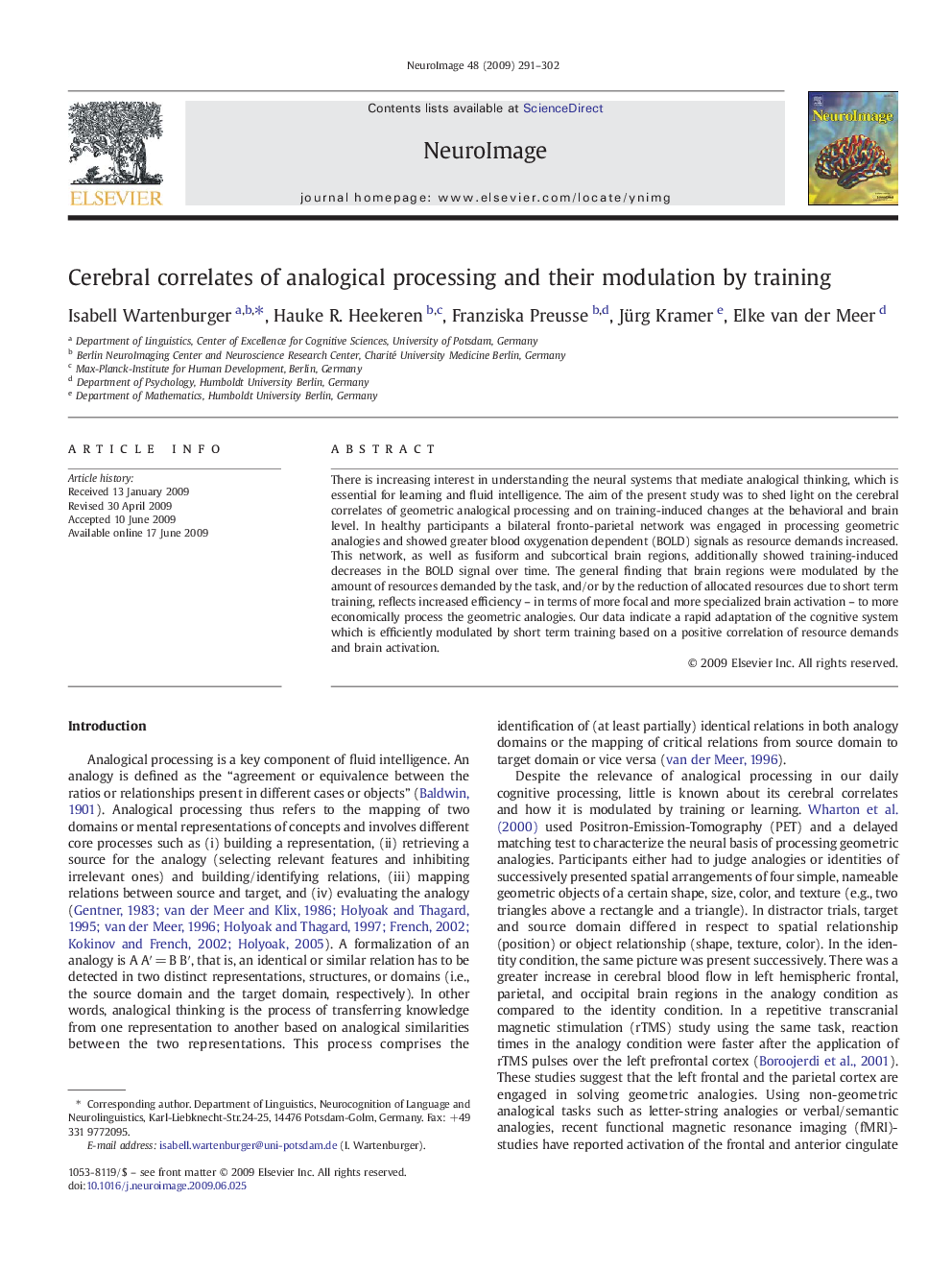| Article ID | Journal | Published Year | Pages | File Type |
|---|---|---|---|---|
| 3072681 | NeuroImage | 2009 | 12 Pages |
There is increasing interest in understanding the neural systems that mediate analogical thinking, which is essential for learning and fluid intelligence. The aim of the present study was to shed light on the cerebral correlates of geometric analogical processing and on training-induced changes at the behavioral and brain level. In healthy participants a bilateral fronto-parietal network was engaged in processing geometric analogies and showed greater blood oxygenation dependent (BOLD) signals as resource demands increased. This network, as well as fusiform and subcortical brain regions, additionally showed training-induced decreases in the BOLD signal over time. The general finding that brain regions were modulated by the amount of resources demanded by the task, and/or by the reduction of allocated resources due to short term training, reflects increased efficiency – in terms of more focal and more specialized brain activation – to more economically process the geometric analogies. Our data indicate a rapid adaptation of the cognitive system which is efficiently modulated by short term training based on a positive correlation of resource demands and brain activation.
